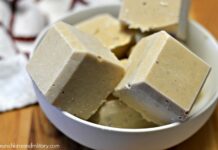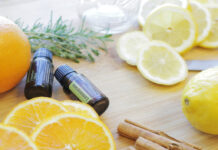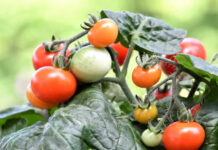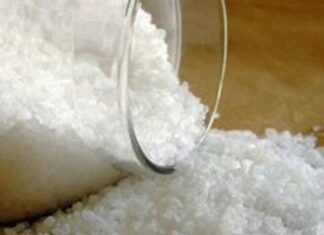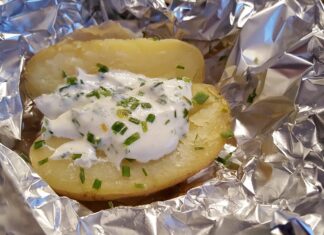Read on for information on how to stop your bananas from turning yellow.
In this article, you’ll learn how to protect bananas from becoming brown by using various storage methods and delayed ripening techniques.
What Causes Bananas to Turn Brown?
After peeling a banana, the fruit can quickly transform from white or yellow to brown. Ripe bananas will grow a dark peel after some time on the counter.
Bananas contain the enzyme polyphenol oxidase, which creates a chemical reaction when it interacts with oxygen. This chemical reaction, known as enzymatic browning, causes the peel and fruit of the banana to turn brown.
When you think of bananas, you probably don’t picture brown bananas. In fact, most people would never even consider buying a banana that was brown on the outside.
Bananas are one of the oldest fruits and contain a great deal of potassium and dietary fiber, which is helpful for healthy bowel movements and constipation alike. They also contain a high concentration of soluble fiber that helps them keep their shape as they ripen.
But over time, exposure to light and moisture can cause bananas to turn brown. This process is called “ripening” because it causes the skin to peal away from the fruit’s fleshy center.
Bananas do not generally become brown overnight or even over a single day; instead, they often take several weeks to begin turning yellowish and shriveling up in the middle before finally falling apart entirely.
How to Prevent Bananas from Ripening
Avocados, apples, and peaches all generate ethylene gas, which accelerates ripening, so keep whole, unpeeled bananas separate from these fruits.
Hanging your unpeeled bananas with a banana holder is another technique to keep them fresh.
Hanging the bananas prevents bruising and keeps the fruit’s bright yellow color. Bananas with bruises will brown faster due to enzymatic browning.
3 Ways on How to Prevent Bananas from Ripening
You can use the following strategies to keep your grocery store bananas from ripening too quickly:
How to Prevent Bananas from Ripening:Use of plastic wrap
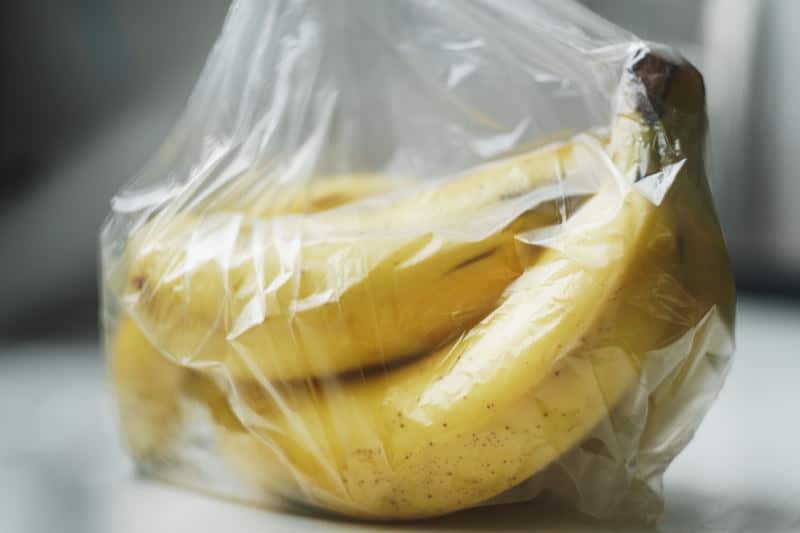
Keep the wrap on; the ethylene gas that causes enzymatic browning escapes from the fruit’s top.
If your bunch is not wrapped in plastic wrap, you can add some to extend the shelf life of your fruits.
How to Prevent Bananas from Ripening:Add the citric acid

To preserve cut bananas, spray a little citrus juice (two parts citric acid to one part water) over a banana fruit salad, mix it up, and then carefully cover it.
How to Prevent Bananas from Ripening:Keep away from direct sunlight
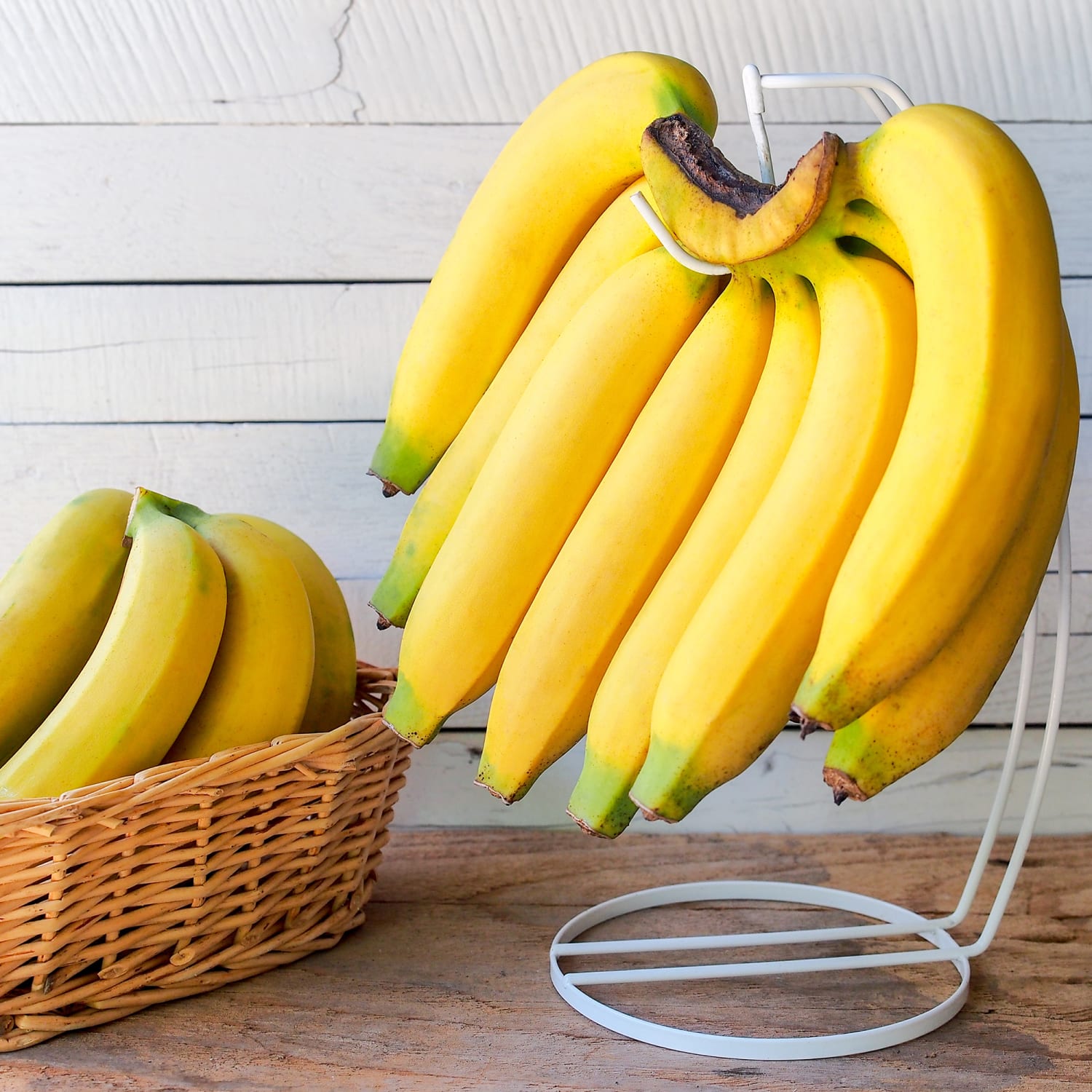
Often, the only way to know when an orange has gone too far is to cut it yourself. But sometimes, you just don’t have time to go to the store and get your hands on a ripe new fruit. In this case, you’ll need to avoid bananas as much as possible.
StorageBananas stay fresh for only 3 – 4 weeks depending on the weather condition in which they were grown. The sooner they are stored away from sunlight and humidity, the less time they will have left to ripen fully before they turn into ethylene gas!
To prevent your bananas from going too green too fast, keep them out of direct sunlight and away from humidity. Try these tips for keeping your bananas fresh.
2 Methods for Long-Term Banana Storage
Bananas should be stored in an airtight container
If you’ve peeled the banana but haven’t eaten it yet, store it in an airtight container or zip-top bag to keep oxygen out and the ripening process at bay.
Put bananas in the freezer
Frozen bananas can be stored for up to a month and retain their color. Keep them separate from other things in your freezer to avoid bruises, and take them out about an hour before serving to defrost and reach room temperature.
Should you keep bananas in the Fridge?
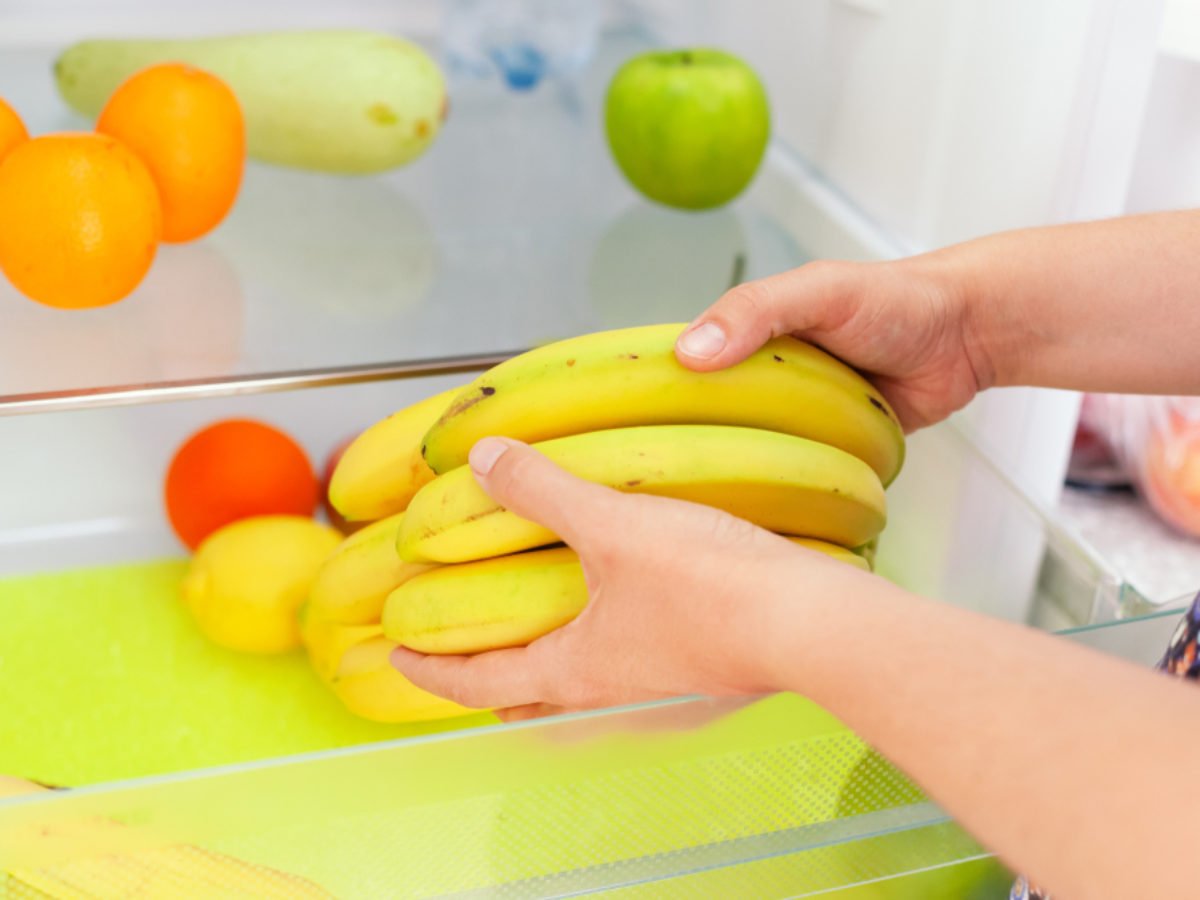
The cooler temperature slows the ripening process, and as long as your banana is yellow and fresh when you put it in the fridge, it will be fine to eat after a couple of days. During the summer, this might be a great, refreshing snack.
If your banana is already brown and ripe, refrigerating it will not stop the ripening process. Fortunately, somewhat mushy or overripe bananas can be used in dishes such as banana pudding, smoothies, and banana bread.
Other Related Questions about How to Prevent Bananas from Ripening
Bananas placed in plastic bags ripen more quickly. Instead, store your bananas at room temperature in a cool, dark spot where they will be exposed to fresh, well-ventilated air. Bananas left in full sunlight or near a heat source may shrivel and become brown quickly.
Is there a container to keep bananas fresh?
Yes, we recommend you use any of the following banana saver container:
- Banana Protector Box Cute 3 Colors
- Polypropylene Round Storage Container
- Lunch Box Ready Banana Case
- Banana Saver Cute Carrier Storage Box
Can you refrigerate bananas to stop ripening?
Yes, bananas can be kept in the refrigerator. Just bear in mind that the cool, dry atmosphere slows the ripening process, which is why supermarket bananas aren’t refrigerated.
In other words, if you put green, unripe bananas in the fridge, they will most likely stay green.
Does separating bananas slow the ripening?
Ethylene gas is naturally released from the banana stems. Separation, particularly covering the ends of the stems, should limit the production of this gas, reducing the rate of ripening.
How do supermarkets keep bananas fresh?
Most fruits are kept in huge chilled coolers in the back room of supermarkets. Each night, the fruit is removed from the sales floor and stored in the chiller to increase its shelf life.
The following morning, it is refilled and rotated. Some fruits and vegetables do not need to be refrigerated and can be left out overnight.
Final Thoughts
When there are too many bananas in the world, they often start to turn brown and become bitter. This is because the natural sugars in the fruit convert into glucose as soon as they reach the surface, where air can get at them.
In order to prevent this from happening to your bananas, you need to know how it happens and what you can do about it.
Bananas are an important source of potassium and B vitamins; so they’re a great addition to any diet if you’re looking for ways to lower your high blood pressure or help keep your body healthy.
Homemade Mosquito Repellent: How to make this Natural Repellent


